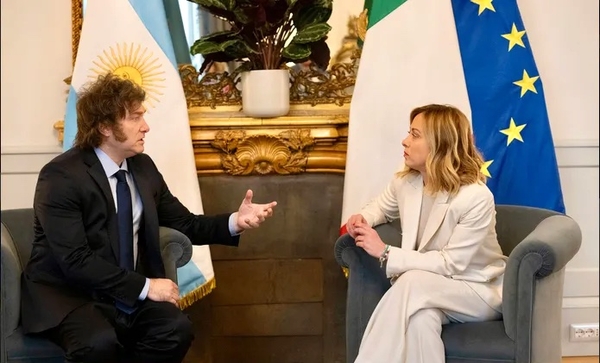The posed question has a dated quality to it: It made sense between 1945 and 2008, from the United States becoming a great power to the election of Barack Obama. Now, sadly, it is an anachronism.
 The U.S. superpower era began and ended with Democratic presidents. |
America represented a new kind of great power, one uniquely melding national interest with moral principle. Forged in the hot war with Nazism and the Cold War with Communism, girded by a faltering but adequate bi-partisan consensus, uncontested in its leadership, Washington indeed stood proud for two-thirds of a century as the tribune of "freedom, democracy, and rule of law."
It then fell from this position, and increasingly so with time. Between a Democratic party that features loud elements who despise the United States ("F**k America") and a Republican party that responds with petulant isolationism ("Stop Funding Ukraine War"), the center has weakened over the past fifteen years. None of the candidates for president (not even the minor ones) offers the potential leadership for the United States to fulfill its former mission of leadership and morality.
Therefore, I cannot offer "promising, concrete, specific steps." Instead, I can point to a mostly-unnoticed silver lining: the bolstering of American allies.
During the old days of a boisterous United States, I noted in 1997, an "American officialdom ... convinced of the righteousness and importance of its cause" repeatedly made the mistake of shouldering too much responsibility for international security, thereby
shoving aside the local parties. This had the perverse effect of freeing up the locals; aware that what they do has almost no importance, they reverted to political immaturity. No longer having to worry about their own skins, they instead indulge in corruption (Vietnam), political opportunism (NATO), and conspiracy theories (the Middle East). The American adult rendered others child-like.
This led to the "topsy-turvy situation whereby the distant and strong power begs nearby and weak states to contain their mutual enemy."
 Mogens Glistrup, the most unserious European politician of them all. |
A weaker United States, in contrast, compels those allies to mature. In Europe, that means leaving the pleasant world of welfare states, waking to the realities of hard power, standing up to Russia, helping Ukraine financially, and developing a serious military capability. In the Middle East, it translates into forming a semi-official alliance against Iran headed by Saudi Arabia and including even Israel. In East Asia, it brings a great number of states from South Korea to Japan to Taiwan to the Philippines to Singapore to Vietnam to India into multiple alliances to defend against China.
Not relying on Uncle Sam focuses attention, strengthens long-atrophied muscles, and develops a seriousness of purpose. In these ways, a child-like America pushes its allies to increase their responsibility, will, and capabilities. Perhaps, just perhaps, a leadership diffused among Argentina, Israel, Italy, Taiwan, and others will strengthen the free world. May the Oval Office tutorial begin.
 Javier Milei of Argentina (L) and Giorgia Meloni of Italy met in February 2024; preparing for their Oval Office tutorial? |
Mr. Pipes (DanielPipes.org, @DanielPipes) is president of the Middle East Forum and author of the just-published Israel Victory: How Zionists Win Acceptance and Palestinians Get Liberated (Wicked Son). © 2024 by Daniel Pipes. All rights reserved.
Oct. 22, 2024 addendum: This analysis builds on a prior one I published in 2013, "The Silver Lining of Obama's Weak America."
Feb. 14, 2025 update: The European Union seems to have received the joint Russian-American memo: time to bulk up the military power, if need be by deficit spending.